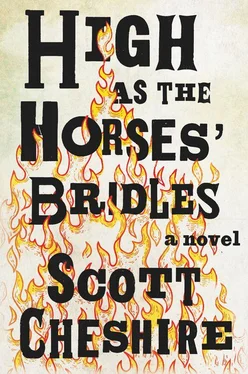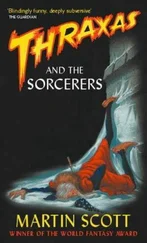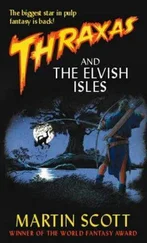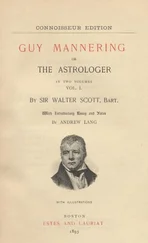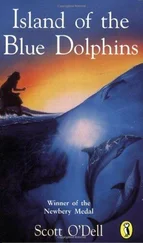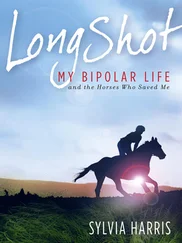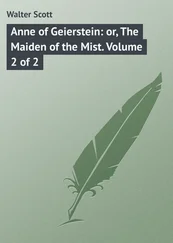That Sunday, because of that sermon, I started my long fight and flight from the angels.
Sarah asked me once when it was exactly I lost my faith. I told her there was simply no such singular time. No single moment when whatever hairline crack suddenly widened, opening up like a fissure. I don’t even know what caused the crack to begin with. This was a slow and invisible process, practically geologic, but I do know that I didn’t join my parents the following Sunday.
That next weekend, Dad asked if he could speak with me, alone. I assumed he meant without Mom around, and so I made like I was going to leave the room with him — but he stopped me.
“Can we talk?” he said.
Mom was sitting at the kitchen table. Crying, starting to wheeze. She was losing control and I was pretty sure it wasn’t just about me not going to church.
“Shoot,” I said.
He said, “Talk. Tell me what’s going on.”
I said, “I don’t think I can talk about it.”
“Try me.”
Mom was recovering her composure.
Dad said, “Ida. Maybe you should leave.”
She shook her shoulders, and wiped at her face. Makeup smeared. Without looking at me, she said, “Josiah.”
I said nothing.
“Answer me this,” she said. “Do you believe in God?”
Mom was on to me.
“You’re angry,” she said, “I know.”
I expected to see judgment in her eyes, accusation, disappointment. I saw nothing of the kind. Only empathy, and her beaten soul.
“Me, too,” she said, and stood up. She pushed past my father, briefly took my hand, and then let it fall away. She left the kitchen.
Dad said I’d grow out of it; it was just a phase. But I never did go back to church. Except then Mom stopped, too. She lost steam. And Dad was only going for her. Dad hardly looked my way anymore.
This made me bold enough to one day ask him — he was out back watering what grass we had surrounding the concrete patio — I walked right up to him as if I’d been dared to and I said: “Look at me, please, and tell me something.”
He aimed the hose away, took his time. He looked at me.
“What about you,” I said. “What’s your testimony? Tell me. I have no idea how you feel. I come from you and so I’m a lot like you, but I’m also not like you at all.”
He squeezed the hose with his hand and cinched it, so the water stopped and the hose looked like a snake swallowing its food. He was quiet for a few moments.
Then he said, “Your grandfather. This was a man of great faith. And he was wrong about some things, but he never lost his faith. I’ve been wrong, too, but I never lost my faith.” He looked at me. “How strong will you be?”
We looked at each other for some time and then I turned and went back to the house. I heard the water jet from the hose and smack the pavement.
I’m not so sure faith is a thing that can ever be lost. Like every love we have, there’s always remnants deep inside us, in our cells.
Mom and Dad did agree on one thing, though: that Mom would never get sick again. We’d been washed, a family washed by God’s love and a chemical bath, and if we were to keep that death at bay, above all, we must remain clean. So morning and night we showered. “At rise and fall,” Dad’s words. And, yes, making something so personal the subject of our daily conversations, ritualizing, really, my morning and evening wash and toilet was discomfiting to say the least. It was odd. At first he asked if I’d fully washed myself, made reference to “our unclean fleshly vessels,” which I supposed was my body. Before long, a new rule: he insisted I wash my vessel seven times, no less, the biblical number of perfection. I did this a few times until I no longer did, and Dad made a few passing comments about my skin not looking vigorously cleaned. I didn’t exactly realize what this kind of behavior suggested, that Dad had other issues. Finally one day I had to put a stop to it.
He tried to open the bathroom door one morning while I was getting out of the shower. No knocking, nothing, he just entered. I threw myself at the door, and it closed on his arm.
He screamed. Slammed it open. I was naked.
He was wearing a small towel, barely covering him. His hair was wet, his skin wet and ruddy. Red marks on his arms and collarbones from what looked like a vicious scrub. “Seven times,” he said, and turned, leaving the door open behind him. I moved to close it — he stopped me. He stopped the door. I grabbed his arm and I pulled him back into the bathroom. It was so easy, I remember thinking, He’s so light!
I pushed him into the clothes hamper, and stood over him.
He was stunned.
He was naked now, his towel fallen to the floor. I wrapped a large bath towel around my own waist, covered myself, and left the room.
He passionately explained to me over dinner one night that his baptism, my baptism, and Mom’s baptism — the original ones, mind you — were false, insufficient in the eyes of God.
“They lack commitment,” he said.
We were sitting at the dining room table eating takeout Chinese food, passing the greasy cartons back and forth. Spooning onto our plates. Mom was quiet.
Dad said, “A sprinkling! Ha!” He was laughing; rice fell from his mouth as he talked. “Baby’s getting baptized! Ha! And these grown-ups dunking their heads underwater. In a swimming pool! How very nice and casual. Ida?” he said. “What can I get for you?”
Mom shook her head: Nothing, thank you. Her head was wrapped in a floral silken cloth.
“This is how you were baptized,” he said. “Josiah. You listening?”
I looked away from Mom, and said, “What?”
“Can you believe it?” He couldn’t stop laughing. “We’re supposed to take this seriously? You were baptized in a swimming pool. Above ground! I doubt you were underwater more than half a second.”
I reached for a carton. Dad helped.
He went on to explain that the original baptismal command required full immersion. We died in that water, were buried underneath and not breathing, which took more than half a second, you bet. Only to be resurrected upon ascension from a symbolic and watery grave. He was positive this should be done every day.
“Every day,” he said, “we live and die in the Lord.”
Mom was hardly eating at all.
One Sunday, I watched her help him distribute pamphlets in our neighborhood, brightly colored Xeroxes announcing “The End Is Near,” rolled into tight tubes piercing the diamond mesh of chain-link fences. She walked slowly, with a walking stick now. But when the overlarge drunk guy from three houses down cursed at Dad from his porch, when he rushed at Dad and pushed him into the hedges, and when he then tried to put my father in a headlock, it was Mom who hit him back. Hard. She scratched at the big man’s neck. She scratched and punched at the skin showing where his shirt pulled open, and she pulled my father away. She swung her walking stick. It all happened so fast that when I ran over to help, the big man had already fallen back on his yellowing grass. Dad’s pamphlet was in a ball beside him. In the kitchen, I watched her scrub blood from underneath her nails. Nobody ever mentioned what happened.
Bhanu and I often talked about what we would do now that we were out of high school. I wanted to move out as soon as possible, and so did she, but we both knew we were too young to get married. And then in July of 1987, Bhanu went to her cousin’s house upstate for part of the summer. When she left she was wearing jean shorts and a white T-shirt that said “Do You Want New Wave or Do You Want the Truth?” And one day there, while visiting neighbors, she dove into a swimming pool and she hit her head on the hard concrete bottom. Either nobody else was there, or nobody was watching, but either way, at nineteen, she drowned and that was it.
Читать дальше
